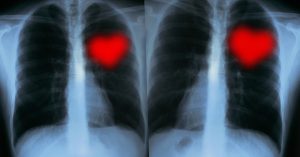How High Blood Pressure Affects Your Heart and Body
High blood pressure, or hypertension, is defined just as it sounds: a condition in which the force of the blood against the walls of your blood vessels is abnormally high. This increase in pressure eventually leads to long-term health problems, such as heart disease, heart failure, aneurysms, dementia, and even death. High blood pressure can be present for years without any symptoms appearing, all the while damaging your heart and organs. Below, we discuss the short- and long-term effects of high blood pressure on the heart and body. If you or a loved one is dealing with high blood pressure, be sure to consult a Tampa heart specialist from Ascent Cardiology Group.
The Short-Term Effects
High blood pressure can fall under one of two categories: primary hypertension and secondary hypertension. Primary hypertension has no underlying cause and can take many years to develop and notice. Secondary hypertension, on the other hand, results from an underlying medical condition, such as birth defects, medications, or illicit drugs.
Whether due to primary or secondary hypertension, pressure on your artery wall puts added stress on your heart. In the short term, both men and women can experience sexual dissatisfaction. As your arteries continue to become weakened and less elastic they become increasingly inefficient in supplying blood, oxygen, and nutrients to the body. Once you experience the signs of high blood pressure — headaches, nosebleeds, and shortness of breath — permanent damage may have already set in.
Whether due to primary or secondary hypertension, pressure on your artery wall puts added stress on your heart. In the short term, both men and women can experience sexual dissatisfaction. As your arteries continue to become weakened and less elastic they become increasingly inefficient in supplying blood, oxygen, and nutrients to the body. Once you experience the signs of high blood pressure — headaches, nosebleeds, and shortness of breath — permanent damage may have already set in.
The Long-Term Damage
As the tissues inside your arteries are damaged and “bad” cholesterol builds up, the risks of developing complications increases. Because every part of your body needs blood to function, virtually every aspect of your person can be compromised by high blood pressure. Sufferers with undiagnosed high blood pressure run the risk of developing:
• Stroke
• Heart Attack
• Heart Failure
• Vision Loss
• Aneurysm
• Kidney Failure
• Memory Loss
• Vascular Dementia
These are just a few of the complications that can result from uncontrolled high blood pressure. Because high blood pressure is known as a “silent killer,” your only way of combating it is by scheduling regular check ups with a heart specialist in Tampa Bay.
• Stroke
• Heart Attack
• Heart Failure
• Vision Loss
• Aneurysm
• Kidney Failure
• Memory Loss
• Vascular Dementia
These are just a few of the complications that can result from uncontrolled high blood pressure. Because high blood pressure is known as a “silent killer,” your only way of combating it is by scheduling regular check ups with a heart specialist in Tampa Bay.
Schedule an appointment with a Tampa Heart Specialist
While it may take years before your high blood pressure develops symptoms, your cardiologist can diagnose your condition over the course of a few short visits. Treatment may entail lifestyle changes, such as implementing a healthy diet and an active lifestyle, or it may involve taking prescription medications. In the event that your blood pressure does not respond to medications — resistant hypertension — you’ll want a cardiologist on your side who can explore potential underlying causes and find a treatment that’s right for you. Diagnosing high blood pressure and treating the underlying cause is a challenge that should only be undertaken by a board-certified cardiologist. If you have any reason to believe that you are suffering from blood pressure spikes, request an appointment with a team of cardiologists that can protect your heart health no matter the cause.
To consult a heart specialist in Tampa Bay from Ascent Cardiology Group, please request an appointment today.
Disclaimer: The contents of this website are for general educational purposes only. All content and media on the Ascent Cardiology Group website does not constitute professional medical advice nor is the information intended to replace the services of Ascent Cardiology Group or other qualified medical professionals. If you believe you are having a medical emergency, call 911 immediately.
The content, views, and opinions communicated on this website do not represent the views of Ascent Cardiology Group. Reliance on any information provided by this website is solely at your own risk. Although this website contains links to other medical websites, this is strictly for informational purposes. Ascent Cardiology Group is not responsible nor do they approve of the content featured on any third party linked websites referenced on this website.
The content, views, and opinions communicated on this website do not represent the views of Ascent Cardiology Group. Reliance on any information provided by this website is solely at your own risk. Although this website contains links to other medical websites, this is strictly for informational purposes. Ascent Cardiology Group is not responsible nor do they approve of the content featured on any third party linked websites referenced on this website.
More Resources

Stress and Heart Disease: What You Can Do to Improve Your Heart Health
Working long hours, filling up free time, and taking on additional responsibilities is a way of life for Type A

What is Nuclear Cardiology?
Nuclear cardiology is a subspeciality of general cardiology that involves the use of radioactive substances and advanced medical imaging modalities

Coronary Heart Disease: What Is It and How Is It Treated?
In addition to being the most common type of heart disease, coronary heart disease is the deadliest. In fact, it’s